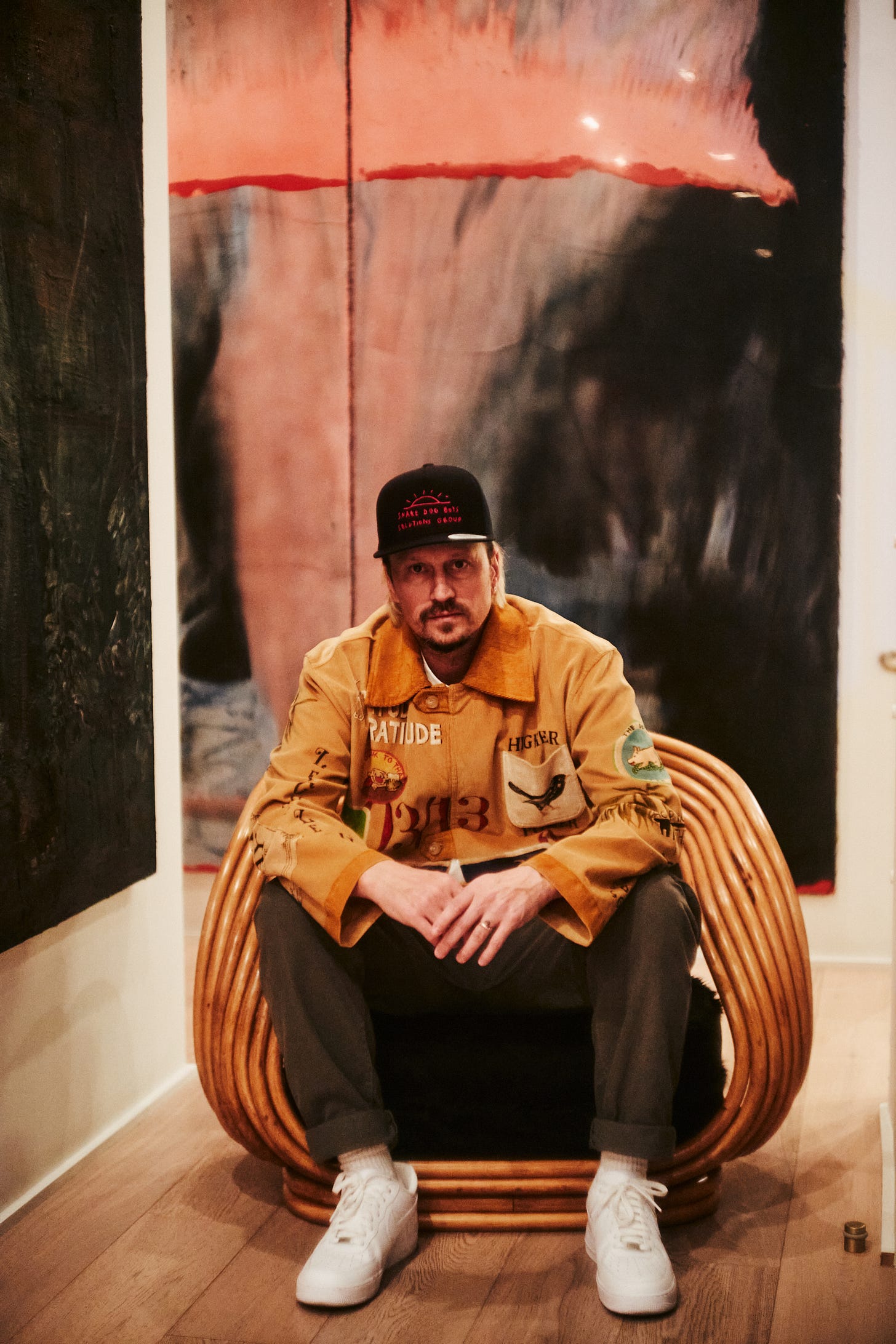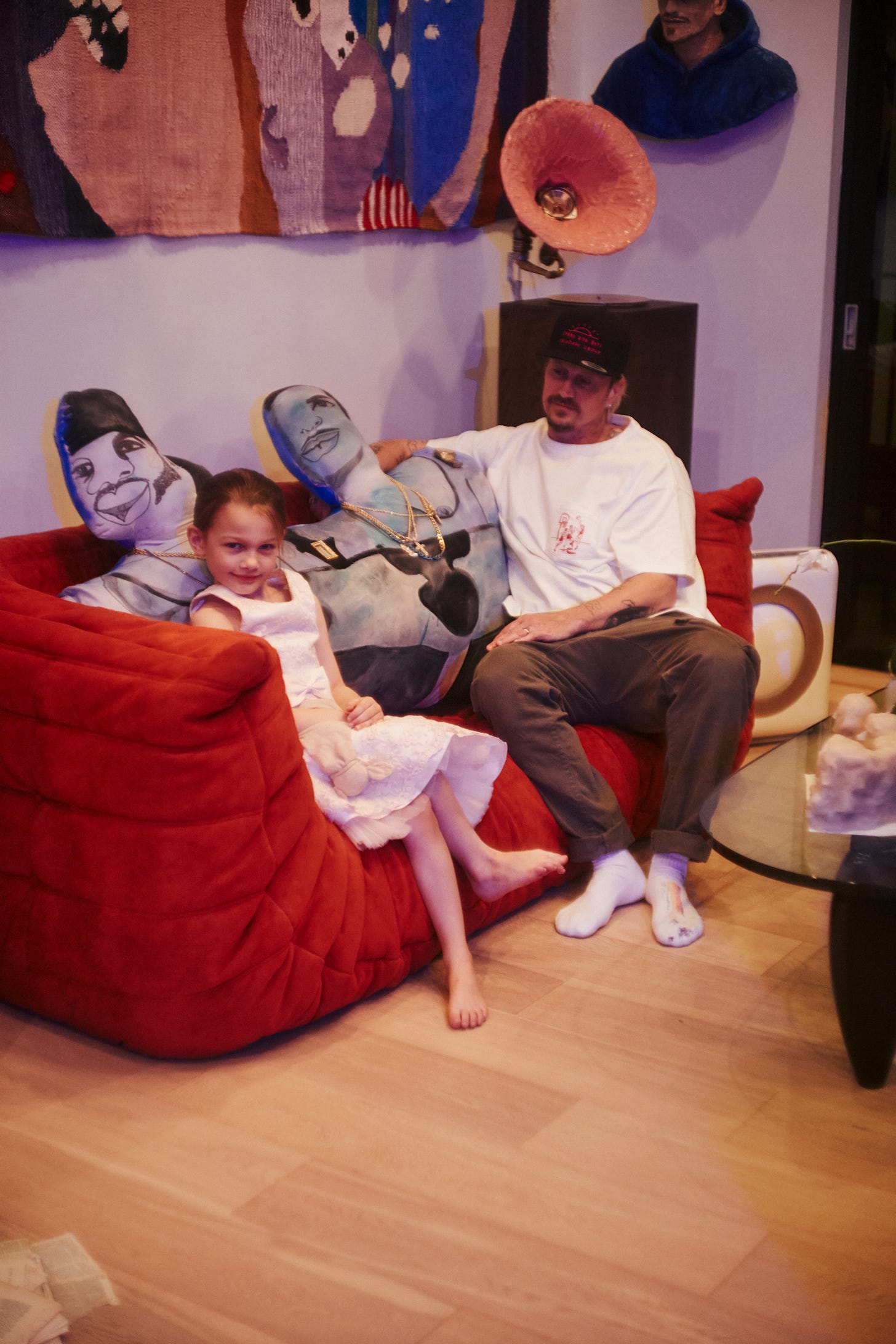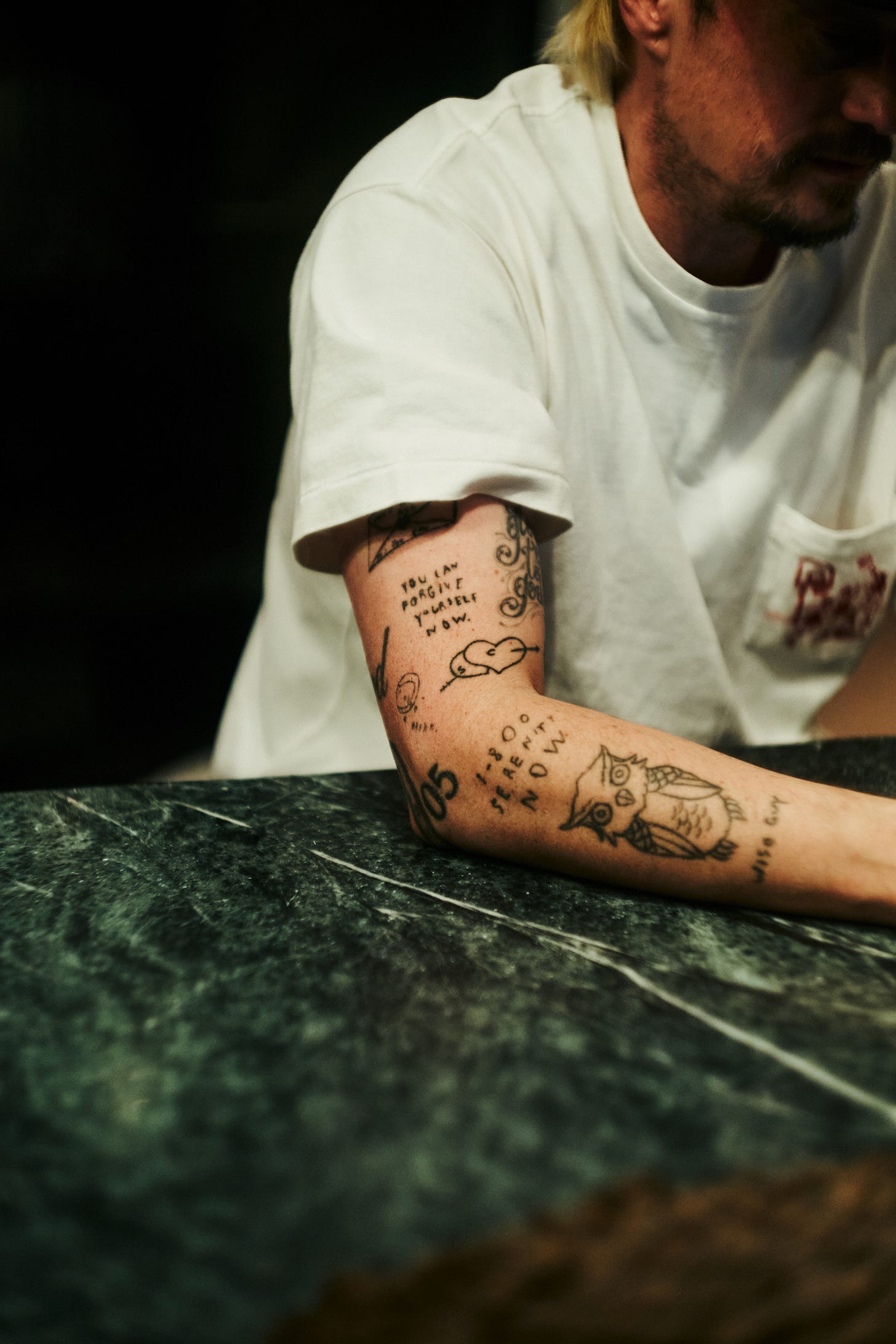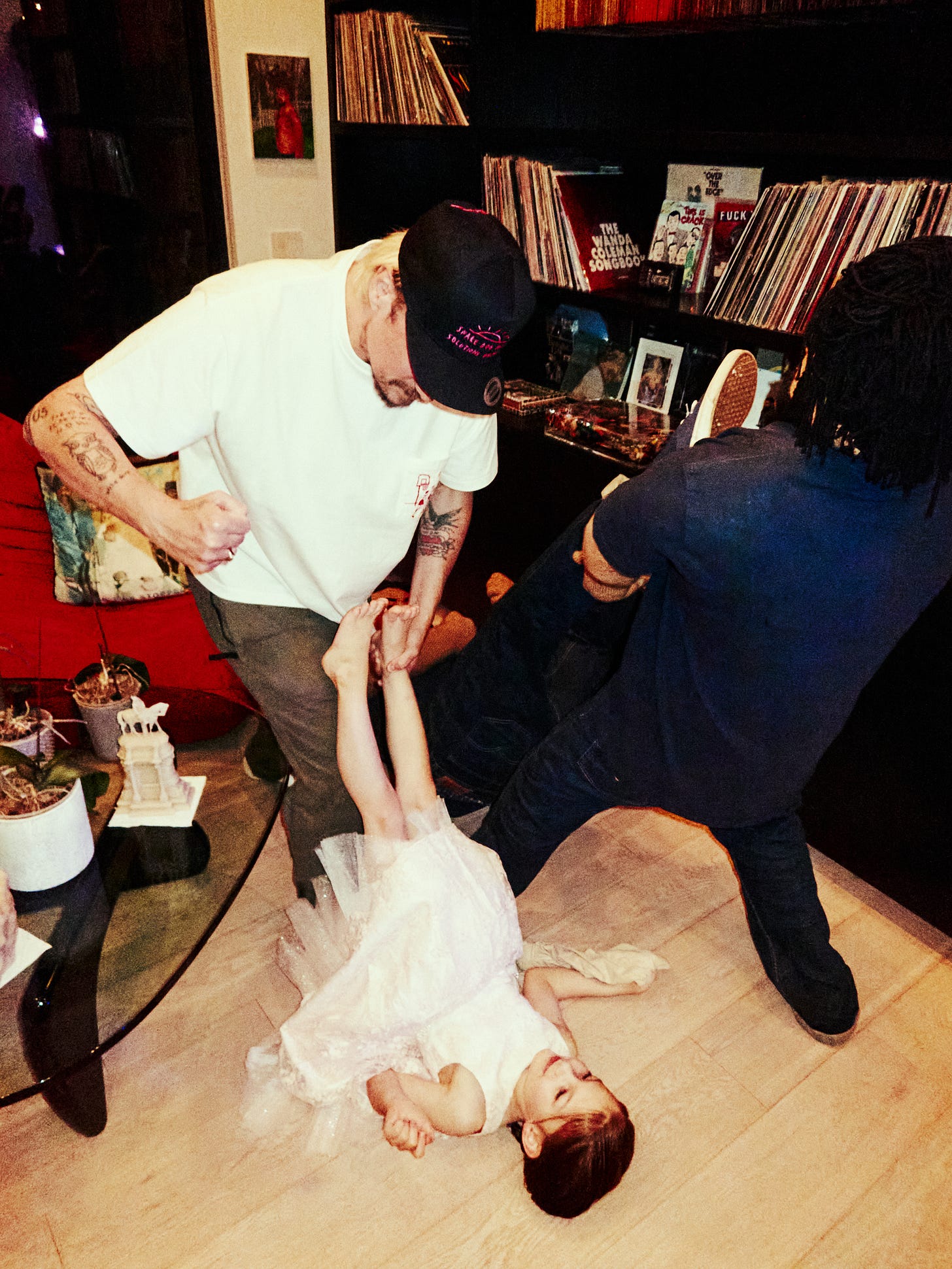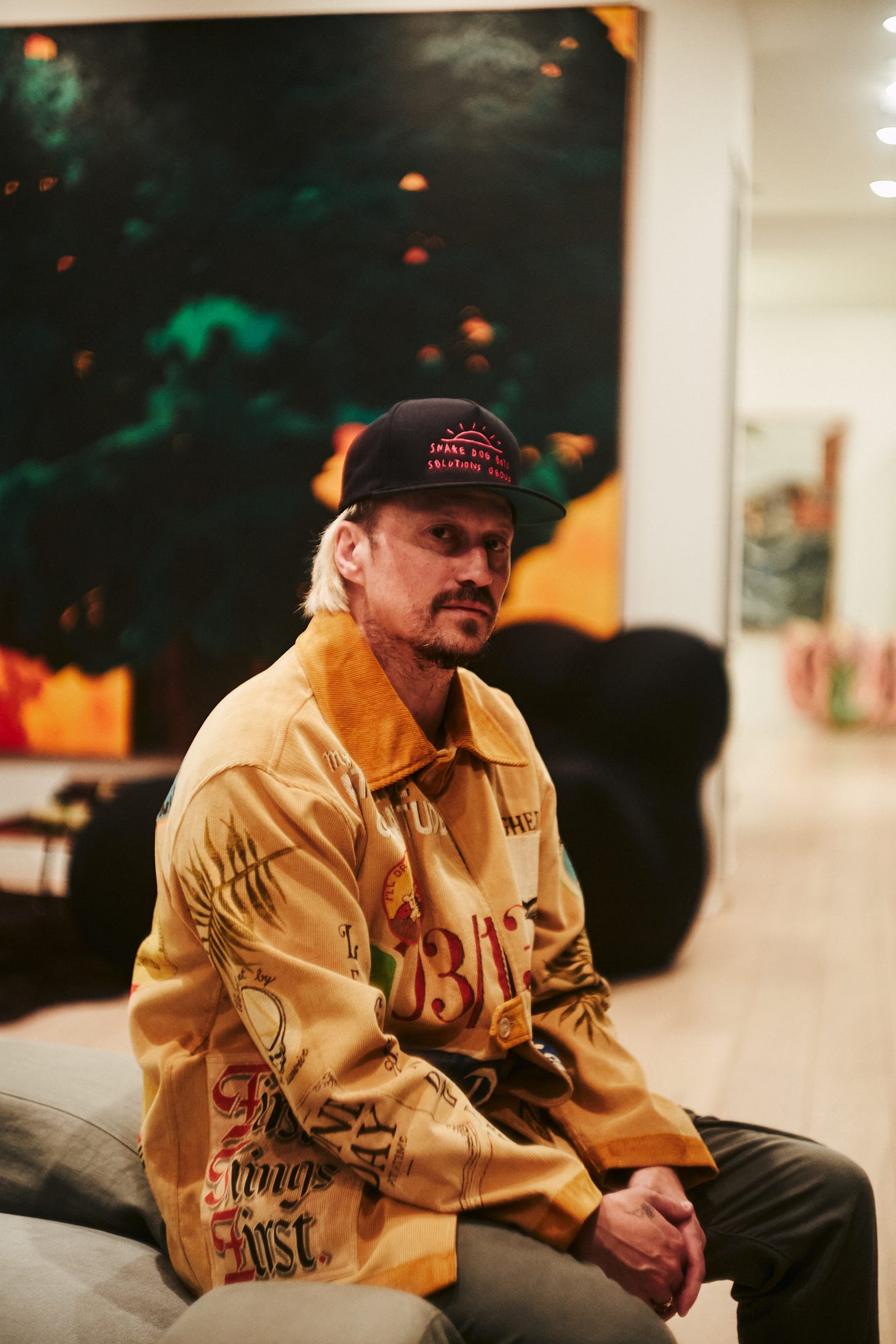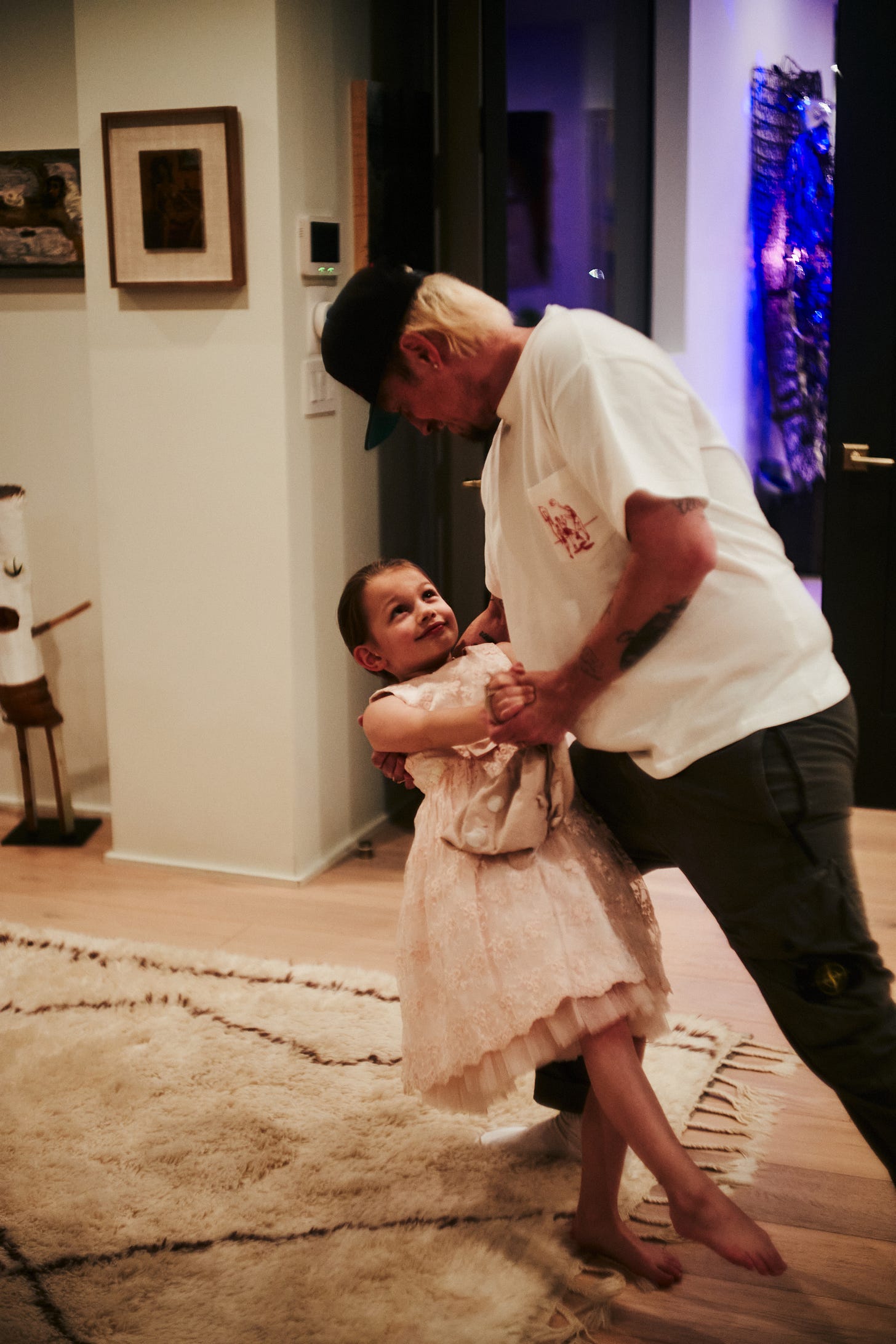FAMILY MATTERS
12 Questions with independent film producer and curator, Michael Sherman
Michael Sherman wears many hats. Literally. And figuratively. Producer. Curator. Patron of the arts. And founder and owner of Bow + Arrow Entertainment, where he makes independent films for cinephiles and boasts a track record of launching big-time talents (he produced the first films of both recent Oscar nominees Brady Corbet and Timothée Chalamet, to name two). But the title that means the most to him today is Dad. On the eve of the 20th anniversary of his sobriety, the Baltimore native once dubbed “streetwear Larry David” reflects on his journey from pink cocaine to parenthood, from the very real specter of death to the joy of getting to be an un-flickering guiding light for his daughter, one day at a time. Over the last two decades, there have been roses and thorns. Failures. And victories. He recognizes that things in life that are beyond his control will knock him off his pedestal. How he reacts, though, is up to him. In sobriety, he abides by the mantra, “Let go and let God.” He has the phrase tattooed on his arm, a daily reminder that hanging onto anything with a negative charge is the surest way to ruin his day. Even a phone call. “When I feel like I’m in a no-win conversation, I’ll be like, ‘You know what? Somebody’s calling me. I’ve got to go,’” he says. “And then I just hang up on the person. So, just know that if I do that to you, that’s what’s happening.”
What does your sobriety mean to you?
Everything. Without sobriety, I’m never going to be happy, joyous, and free. It ain’t happening for me. I’m not punching that ticket.
What was the driving force that led you to sobriety?
Pain. Fear. Shame. Ultimately, I wanted to be a dad. I was either going to die or I was going to get my sh*t together and be a dad. And being a dad is the greatest gift sobriety has ever given me. I’m forever grateful I chose this path instead of the other one.
What’s something you’ve done sober that you never thought you could do sober?
My dad died and I didn’t drink. That was tough. The fact that I got through it without even thinking about drinking is a testament to the strength of my program, my friends, my sponsor, my sponsees, my wife, my family. I remember right when I got sober I’d think, “Man, I’m not going to be able to have a glass of Champagne at my wedding?” I got married 12 years into sobriety. At that point, I didn't even think about Champagne. I could care less.
What is the best piece of advice you’ve ever received and from whom?
“Control the controllable.” From my dad. It’s tattooed on me. I’ve really tried to stay true to that in honor of my old man. I’ll be like, “I made this great movie. It’s amazing. It’s going to be amazing.” But I have no control over what happens with it. What I think is great might not be what everybody else thinks is great. I did the best I could. I made the best product I could. After that, it’s not up to me. It’s up to the consumer. And that’s fine.
What’s it been like navigating the film world sober?
Lots of anger. Lots of resentments. Lots of disappointments. But, also lots of victories. Lots of fun. Lots of wonderful relationships. It’s a tricky business.
Given alcohol's well documented effects on productivity, why do you think there continues to be so much stigma re: not drinking in creative industries?
Our industry is filled with people who need validation. Constantly. It’s a lot of egos. But that’s what’s so beautiful about sobriety. You show up with no ego. A lot of people think that if you’re not drinking, you’re not cool. Look at how many people in the business have been to rehab. Look at how many have died from alcohol and drug overdoses. That’s part of it, this belief that coolness comes from alcohol. I used to think I was cool when I sniffed blow every night. But I was literally alone in my apartment at 6 am calling prostitutes just so I could spend some time with somebody because I was so lonely.
What’s the best movie you’ve ever seen about addiction?
Leaving Las Vegas. It’s a really good take on alcoholism.
How has sobriety affected your relationships with the people closest to you?
It’s allowed me to love unconditionally. It’s allowed me to be intimate. Those are things I couldn’t do when I was drinking and using. When I was in treatment, nobody came to visit me. The fact that my family talks to me today, that we have great relationships, it’s made everything better. By far.
Did sobriety change your personal style?
I’ve always done my own thing. I kind of teeter between hip-hop and vintage preppy. I love Bode. But I also love Supreme. I love Rick Owens. But, I also love Starter. You can combine anything you want. That’s the beauty of having the freedom to get dressed in the morning. About three years ago, I went and got my ear pierced and colored my hair. I call it my “midlife nice-is.” I’m going to be 50 this year and I’ve got pink hair. It’s just who I am. I like to stick out in a positive way.
In your mind’s eye, what is the shape of success?
Happiness. Humility. Kindness. Those are markers for success. I don’t measure success by how much money you have. I measure success by how much love you have in your life.
What gives you hope?
The look on my daughter’s face gives me hope.
You’re celebrating twenty years of sobriety this week. What’s your plan for the next twenty?
I got sober at 29. So at 58, I’ll have lived half my life sober. I think that’s a really cool thing. Of those markers in sobriety, 30 days was incredible, one year was unbelievable, five years was great, 10 years was amazing, and 20 is magical.
Photographs by Roman Koval


